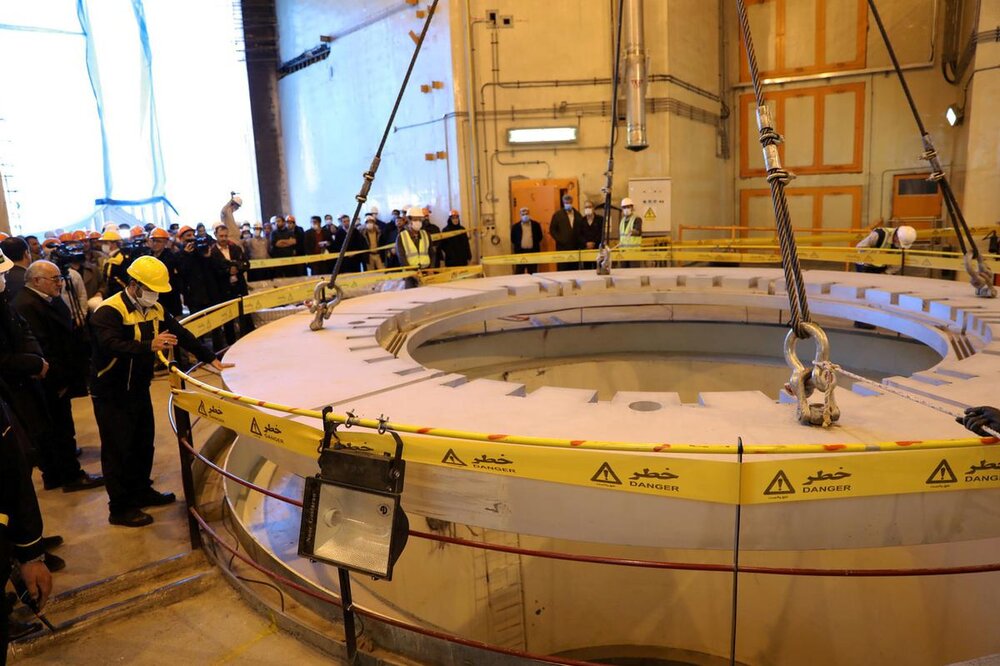How Iran will respond to snapback sanctions

TEHRAN - As the U.S. moves forward with its plan to snap back all UN sanctions on Iran, the world holds its breath to see how Iran would respond to a potential return of UN restrictions.
President Donald Trump has announced that the U.S. will be triggering the snapback of UN sanctions on Iran, a mechanism built into the 2015 nuclear deal between Iran and world powers to allow the deal’s parties to reinstate the UN sanctions on Iran in case it didn’t uphold its commitments under the deal, which is officially known as the Joint Comprehensive Plan of Action (JCPOA).
“We'll be doing a snapback. You'll be watching it next week,” Trump said on August 15, the day after the UN Security Council rejected a U.S.-drafted resolution to extend a UN arms embargo on Iran.
Under the JCPOA, the arms embargo is slated to expire on 18 October. However, the U.S. makes efforts to extend the embargo. In a bid to ensure that the embargo is not expired, the U.S. plans to resort to the highly controversial process of triggering the snapback, a move that is widely expected to face firm opposition from the JCPOA parties, including Washington’s European allies.
Tehran and other remaining parties to the JCPOA have strongly questioned the U.S. legal authority to re-impose the UN sanctions on Iran because it unilaterally ceased its participation in the deal. However, the U.S. claims that its withdrawal from the JCPOA didn’t deprive it of the right to use the snapback process. The U.S. is now making the case that it’s still a “JCPOA participant state” as defined by the UN Security Council resolution 2231, which was unanimously adopted on July 20, 2015, to endorse the nuclear deal.
There are two schools of thought concerning the U.S. position on the snapback; some believe that the U.S. has no legal authority to initiate the snapback process because it is no longer a JCPOA participant state from a legal point of view, while others believe that the U.S. as a hegemonic state with veto power could succeed in triggering the snapback by exploiting its leverages at the UN Security Council, according to Hassan Beheshtipour, an expert on Iran's nuclear program.
“The U.S. can’t snap back the UN sanctions on Iran by using the legal authority stipulated in the JCPOA and the UN Security Council resolution 2231 because it has withdrawn from the JCPOA according to a directive issued by President Trump. Furthermore, the snapback mechanism is a part of the JCPOA, and resolution 2231 endorsed the nuclear deal. So the U.S. has no right to initiate the snapback mechanism,” Beheshtipour told the Tehran Times.
He added even if the U.S. triggers the snapback sanctions, other countries on the Security Council won’t implement the sanctions since the implementation of these sanctions is contingent on cooperation with the other countries.
He also said that the European signatories to the JCPOA can save the deal by not implementing the UN sanctions if they are reinstated.
Iran has previously said that any extension of the UN arms embargo would lead to the death of the JCPOA. Deputy Foreign Minister for International and Legal Affairs Mohsen Baharvand warned late July that the U.S. efforts to extend the UN arms embargo on Iran would spell the end of the 2015 nuclear deal.
Similarly, Secretary of Iran's Supreme National Security Council Ali Shamkhani has warned about the death of the JCPOA.
In a tweet on May 3, Shamkhani wrote: “JCPOA will die forever by circumventing 2231 Resolution & continuing Iran's illegal weapons sanctions. Sanctions' virus is the U.S. tool for survival of its declining hegemony. What will EU do: Save dignity & support multilateralism or Accept humiliation & help unilateralism?”
In a message to the leaders of the JCPOA parties in May 2019, President Hassan Rouhani warned against extending the UN arms embargo, saying that the extension of the arms embargo would have “dire consequences.”
It’s not clear yet what Rouhani meant in his warning. But Beheshtipour said that the Iranian president has warned that Iran will stop implementing the Additional Protocol to the NPT.
“On the first anniversary of the U.S. withdrawal from the JCPOA, President Rouhani sent a message to all JCPOA parties in May 2019, declaring that under the supervision of the IAEA, Iran will gradually reduce its commitments under the JCPOA. Iran also warned that it will not be committed to the voluntary implementation of the Additional Protocol if the snapback mechanism triggered,” Beheshitipour noted, underlining that the Rouhani message was confidential and its details have never been disclosed.
The expert went further to say, “The message was very important and strategic because Iran outlined its response to the potential triggering of the snapback. In this message Iran told the JCPOA parties what it will do if they trigger the snapback.”
Beheshtipour said he didn’t see the message but it was clear for him that Rouhani warned of stopping the implementation of the Additional Protocol.
According to Beheshtipour, Iran is cooperating with the International Atomic Energy Agency (IAEA) at the highest level, despite all diplomatic tensions between Iran and the U.S.
The IAEA has the most robust verification system in Iran, pointed out the expert. But, he added, this system will be dismantled if the U.S. triggers the snapback.
The analyst said Iran has many options to respond to the snapback including stopping the implementation of the Additional Protocol, increasing the uranium enrichment level, and ending cooperation with the IAEA, which will make the West regret the triggering of the snapback.
There are speculations that Iran could wait until the U.S. presidential election to respond even if the U.S. initiates the snapback. However, Beheshtipour believes that regardless of who may win the U.S. election, Iran will respond to the U.S. move since the snapback process could totally dismantle the JCPOA.
Leave a Comment